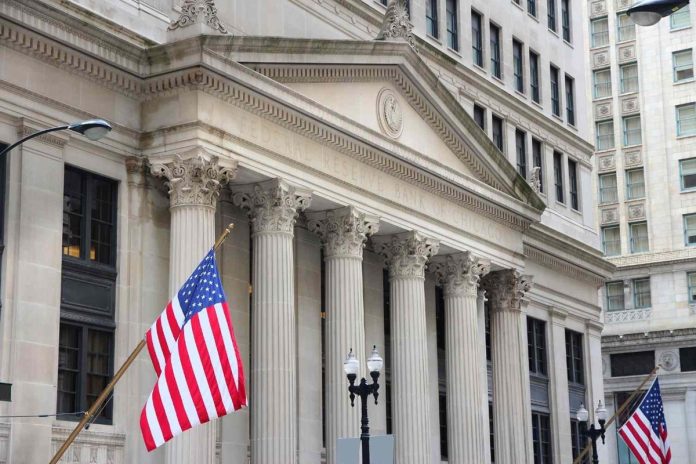Recent revelations from a hidden camera footage have stirred controversy surrounding the actions of the US Federal Reserve, accusing the institution of prioritizing political agendas over economic stability. According to the footage, key figures within the Federal Reserve allegedly halted measures to combat inflation out of fear that it could impact President Joe Biden’s chances of re-election and inadvertently bolster former President Donald Trump’s return to power.
The footage purportedly captures Aurel Hizmo, a principal economist at the Federal Reserve, admitting that the institution refrained from raising interest rates to tackle inflation, as it could potentially trigger a recession. This decision, as claimed by Hizmo, was influenced by concerns over its potential impact on Biden’s re-election prospects. Such allegations raise serious questions about the independence and integrity of the Federal Reserve, which is tasked with maintaining stable prices and maximizing employment, regardless of political considerations.
Furthermore, Hizmo’s remarks shed light on the strained relationship between Federal Reserve Chair Jerome Powell and former President Trump. Hizmo suggests that Powell resisted pressure from the Trump administration to lower interest rates, contrary to Trump’s desires to stimulate the economy. This revelation not only underscores the contentious dynamics between the Federal Reserve and the executive branch but also raises concerns about the politicization of monetary policy decisions.
Moreover, Hizmo’s comments regarding Powell’s purported alignment with the Biden administration and progressive agendas within the Federal Reserve add another layer of complexity to the situation. Allegations of bias and ideological influence within the institution further erode public trust in its ability to impartially fulfill its mandate.
The implications of these allegations extend beyond mere political maneuvering; they strike at the heart of economic stability and the well-being of the American people. With inflation on the rise and concerns mounting about its impact on everyday Americans, the Federal Reserve’s purported reluctance to take decisive action raises serious concerns about its commitment to fulfilling its mandate.
Critics argue that the Federal Reserve’s primary responsibility is to safeguard the economy and promote the interests of the American people, irrespective of political considerations. Any suggestion that its decisions are influenced by partisan motives undermines its credibility and threatens the stability of the financial system.
Furthermore, the notion that the Federal Reserve may prioritize political expediency over economic prudence raises fundamental questions about the institution’s accountability and transparency. If proven true, these allegations could have far-reaching implications for the Federal Reserve’s autonomy and its ability to effectively carry out its mandate in the future.
In light of these revelations, calls for greater oversight and accountability within the Federal Reserve are likely to intensify. Transparency measures and mechanisms to insulate monetary policy decisions from political interference may be necessary to restore public trust and confidence in the institution.
Ultimately, the allegations of political manipulation at the Federal Reserve underscore the delicate balance between political independence and accountability in monetary policy. As the Federal Reserve navigates these challenges, its ability to uphold its mandate and serve the interests of the American people must remain paramount, free from the influence of partisan agendas.




